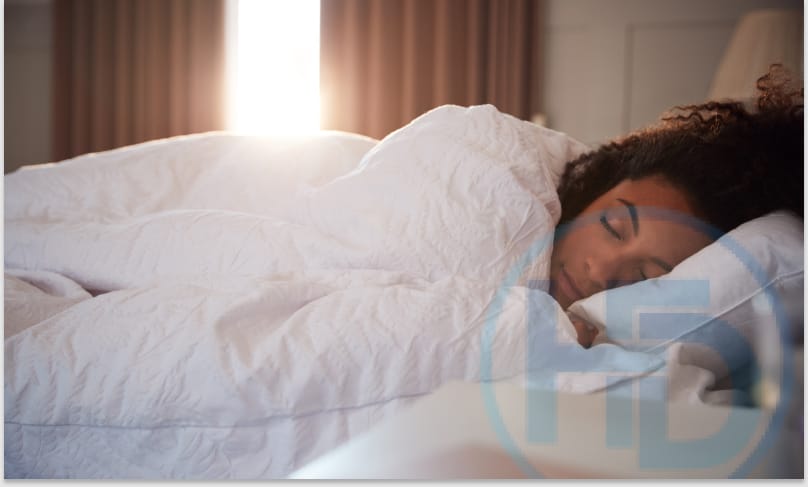Did You Know that People with Sleep Apnea Stop Breathing in Their Sleep?

How much do you really know about sleep apnea?
Sleep apnea is a potentially serious condition that can affect your health and quality of life. Many people are familiar with sleep apnea, and yet some suffer from it without realizing it. However, there are many treatment options available to help overcome sleep-disordered breathing and avoid potential complications.
What is sleep apnea?
Sleep apnea is a condition where you temporarily stop breathing during sleep and jerk awake suddenly. There are two main types of sleep apnea, central and obstructive.
Central sleep apnea is the rarer of the two and occurs when the brain signals to the muscles responsible for breathing are hindered.
The more common type is obstructive sleep apnea. This condition involves the closing of the airway during sleep, restricting breathing. The muscles around the airway relax, allowing the airway to close. When this happens, you jolt awake suddenly, often falling asleep again and potentially having no memory of the event.
There are many risk factors that can contribute to sleep apnea. The condition is much more common in men and occurs more frequently in older adults. Some people have naturally narrower airways, and factors such as enlarged tonsils can also tighten the airway. Excess weight, smoking, and alcohol use are also major risk factors.
Sleep apnea is a serious condition.
The idea of simply stopping breathing during sleep strikes most people as a very serious issue. Sleep apnea is absolutely a major cause for concern, but not for the reason you might think. The natural response to a restricted airway is to wake up immediately, so cases of sudden suffocation due to sleep apnea are incredibly rare.
However, sleep apnea does have severe health risks. The lack of oxygen causes your blood pressure to spike to compensate, increasing the risk of a wide range of heart conditions. You’ll also experience lower-quality sleep and feel more tired throughout the day, impacting your quality of life.
One effect of sleep apnea that most people aren’t aware of is dry mouth. Most people with sleep apnea breathe through their mouths rather than their noses. This leads to reduced saliva, so you wake with your mouth feeling dry.
Saliva has natural antimicrobial peptides that keep bacteria levels low. When you experience dry mouth, bacteria can grow in greater numbers. This increases your risk of tooth decay and gum disease, which can lead to serious complications such as tooth loss.
Watch out for these warning signs of sleep apnea.
One of the primary reasons sleep apnea is so dangerous is that many people don’t realize they have it. Even if you wake up several times throughout the night, you typically fall asleep right after and don’t remember. In other cases, you may misattribute waking to other causes, such as having to go to the bathroom.
You can watch for these signs to find out whether you should be concerned about sleep apnea:
- Frequent waking at night
- Loud snoring
- Gasping during sleep
- Dry mouth upon waking
- Headache upon waking
- Fatigue or tiredness during the day
Sleep apnea is also associated with bruxism, the grinding or clenching of teeth during sleep. If you have sensitive teeth or visible wear on your teeth, it could be related to sleep apnea.
What are the treatment options for sleep apnea?
The first step to seeking out treatment for sleep apnea is to get a diagnosis from a sleep doctor. You can bring up symptoms with your dentist as well, but they will need to refer you to a sleep doctor for the actual diagnosis.
Your treatment will depend on the severity of your sleep apnea. Lifestyle changes such as losing weight, quitting smoking, or avoiding alcohol may be recommended.
Serious cases of sleep apnea may call for a continuous positive airway pressure (CPAP) machine. You’ll wear a mask over your nose, connected to a machine that generates steady air pressure. The pressure prevents your airway from closing while you sleep.
In other cases, an oral appliance may be the right solution. A custom occlusal splint or nightguard can hold your jaw in a position so the muscles in your throat won’t relax and close your airway. This can help relieve a wide range of sleep apnea symptoms, including snoring.
Learn more about sleep apnea and your health.
If you’re experiencing any sleep apnea symptoms, you can bring it up with your Edwardsville dental practice. Hite Family Dentistry can let you know if you should see a sleep doctor for diagnosis and identify signs related to sleep apnea, such as worn teeth from grinding. A custom occlusal splint can help alleviate symptoms in many cases of sleep apnea, along with protecting your teeth from grinding. Schedule an appointment with Hite Family Dentistry to find out whether a custom nightguard is right for you.
